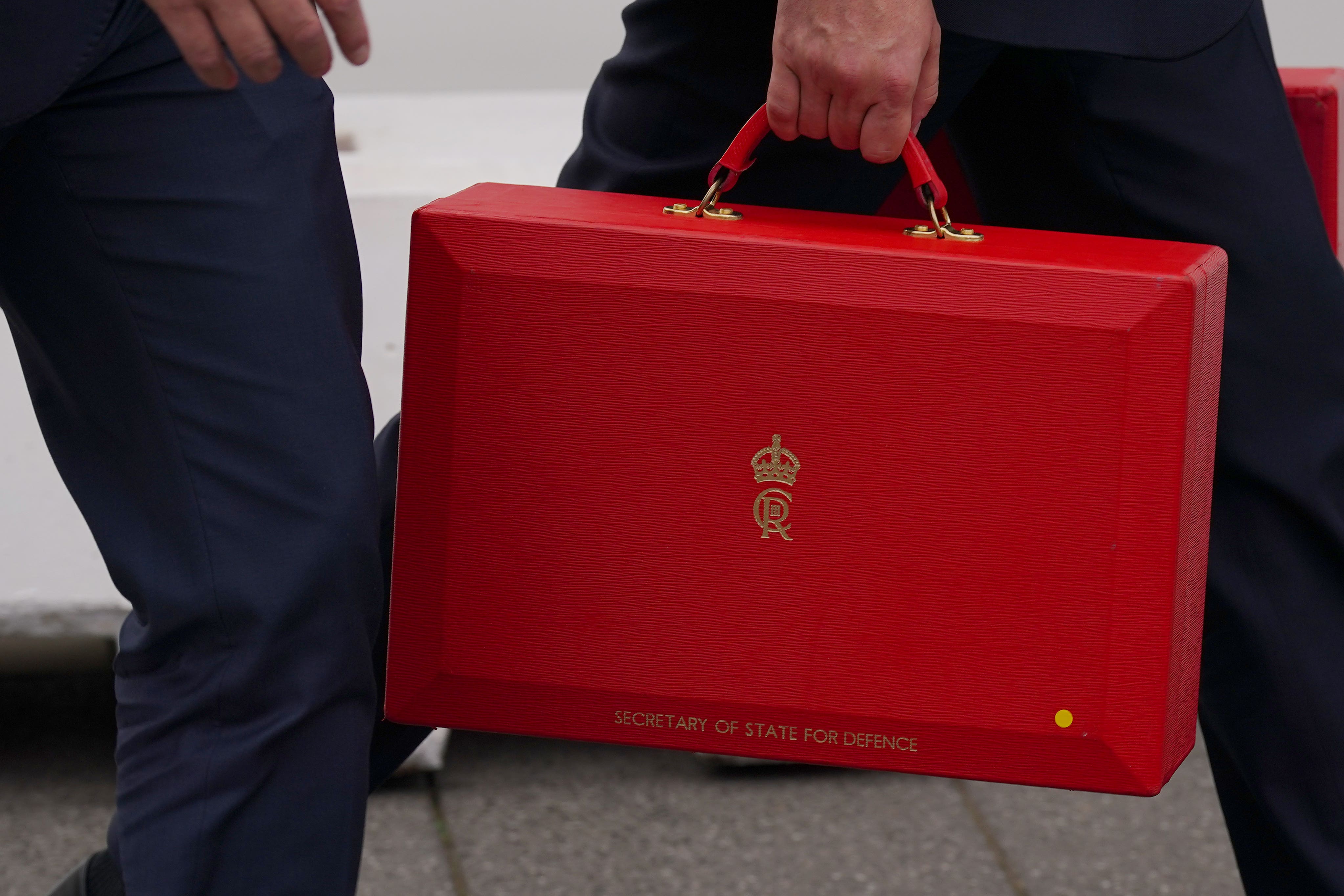Legislation to strengthen powers of public finances watchdog clears the Commons
The Budget Responsibility Bill aims to create a “fiscal lock” to ensure such policies are subject to an assessment by the independent OBR.

Legislation that will ensure the Government consults a watchdog before making major tax and spending changes has cleared the Commons.
The Budget Responsibility Bill aims to create a “fiscal lock” to ensure such policies are subject to an assessment by the independent Office for Budget Responsibility (OBR).
Treasury chief secretary Darren Jones said that “every fiscally-significant change to tax and spending will be subject to scrutiny by the independent OBR” as a result of the Bill.
“This builds on existing legal framework requiring the OBR to produce at least two forecasts per year, and importantly the OBR’s assessment should include the extent to which the Government is meeting its fiscal mandate,” he added.
Mr Jones went on to say the Bill strengthens the role of the OBR and is “a crucial first step to ensure sustained economic growth” in the Commons on Wednesday.
He also claimed Labour’s large majority in Parliament is in part due to Liz Truss’s mini-budget, adding later: “Unassessed spending commitments don’t just threaten the public finances; they can threaten people’s incomes and people’s mortgages, as we have seen from the period in office before the election from members opposite.
“And so, I would encourage right honourable and honourable members opposite who tell us today that we have had an economy never so good after 14 years of Conservative government to reflect, if only for a moment, on why they lost all credibility for economic competence and suffered their worst election result in their history.”
In 2022, former prime minister Ms Truss and former Tory chancellor Kwasi Kwarteng’s mini-budget resulted in market chaos after the pair ignored calls for an assessment by the OBR ahead of the announcement.
Conservative shadow Treasury minister Nigel Huddleston claimed the Government is “planning to change their fiscal rules at the Budget”, as he put forward the Tories’ amendments.
We will never play fast and loose with the economy as members on that side did, and this Bill will prevent that happening in the future
Mr Huddleston said the amendments, which were rejected by MPs, aimed to “ensure that the fiscal lock proposed in this Bill should also include any changes to the fiscal rules and would require the Office for Budget Responsibility (OBR) to produce a report on their effect on public finances”.
Prior to the vote on the amendments, he said: “We believe our amendment requiring an OBR report on changes to the fiscal rules is entirely consistent with the Government’s stated policy intent, and should therefore be a fairly uncontentious amendment.
“If the Labour Party vote against our amendment, it will merely prove that they are planning to change their fiscal rules at the Budget, to borrow more money, increase debt and run away from independent OBR scrutiny, the very opposite of the stated intent of this Bill.”
Former Treasury minister Andrew Griffith argued that residents do not send MPs to Parliament to “give away our duties and responsibilities to unnamed, unknown, unelected officials” at the Office for Budget Responsibility (OBR).
And shadow Treasury minister Alan Mak claimed the law “is actually designed to distract everyone from Labour’s economic record and paved the way for tax rises in the autumn budget”.
He said: “They’ve been in Government for just nine weeks and already carried out nine acts of economic vandalism.
“They’ve removed the winter fuel allowance from 10 million pensioners despite promising not to, caved into their union paymasters by agreeing inflation-busting pay rises, failed to commit to investing 2.5% of the national income on defence, cancelled vital infrastructure upgrades on the A27 and A303, cut funding for the vaccine manufacturing fund that will protect our health, imposed Whitehall diktats to concrete over our green spaces, stop Conservative plans to build 40 new hospitals, scrapped funding for a next-generation supercomputer, undermining our status as a tech superpower, and appointed Labour donor to senior civil service jobs without open competition.”
During the committee stage of the Bill, he said: “Hands on the face of a stopped clock are sometimes more accurate than the OBR forecast because at least they are correct for sure twice a day.
“In truth, this legislation, put together at breakneck speed, has more holes than a Swiss cheese.”
The Arundel and South Downs MP added: “This is the right chamber for accountability, we should hold ourselves to account, we have a number of ways in which to do that to ourselves and there’s a very real issue about … quangos, arm’s-length bodies, and how we hold ourselves to account.”
Labour MP Stella Creasy (Walthamstow) voiced her support for the legislation, adding the Government should “protect the British public from the consequences at a national level because we saw so many examples of it under the previous administration”.
Ms Creasy also argued the Government should learn from private finance initiatives (PFI), describing them as a “huge drain on our public finances”, with some NHS trusts spending more repaying PFIs than on “drugs for their patients”.
She added: “When we are asking pensioners to pay more for heating their homes, we should be asking how we can pay less for the private finance that we have built up.”
Bookmark popover
Removed from bookmarks